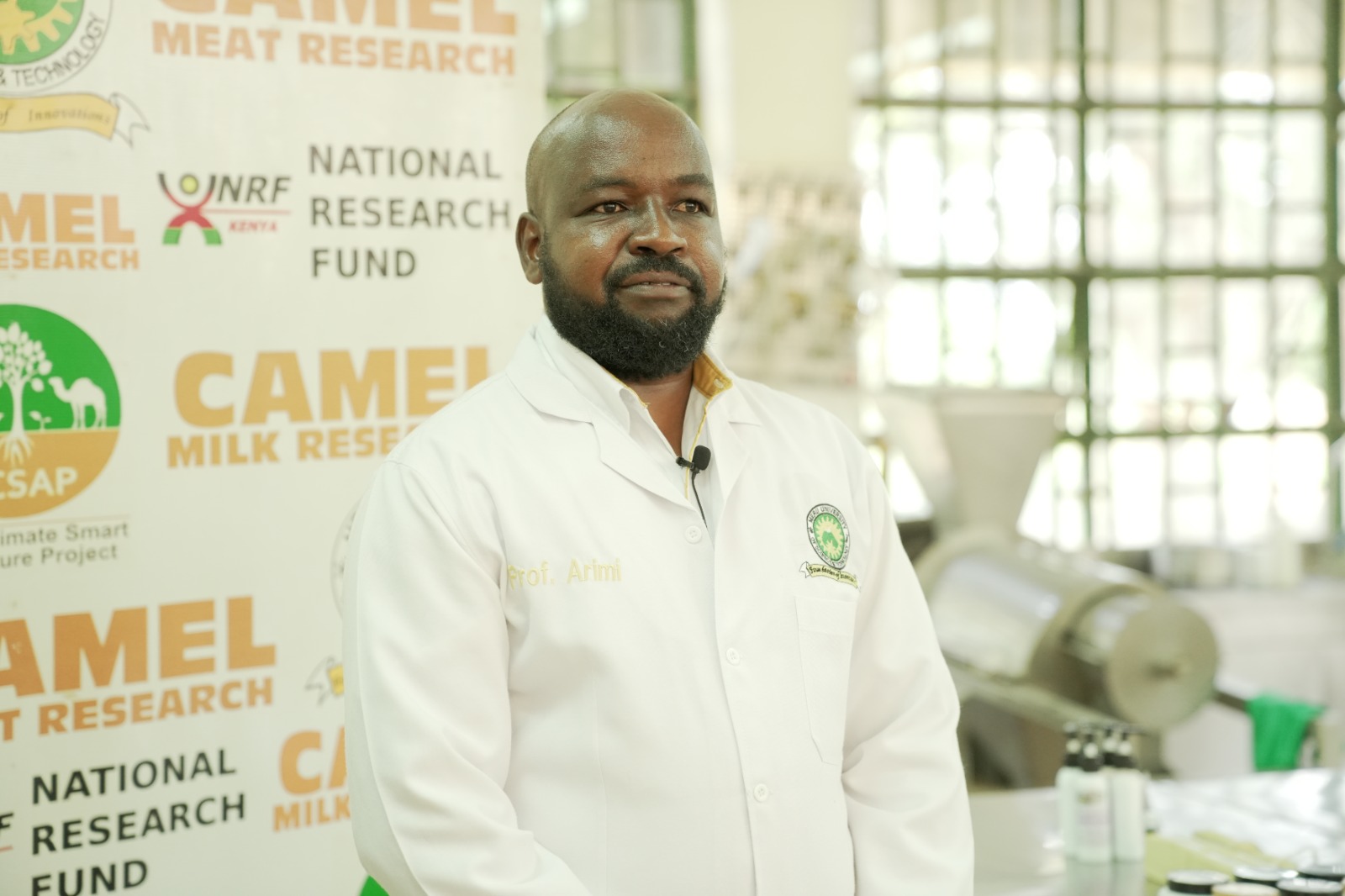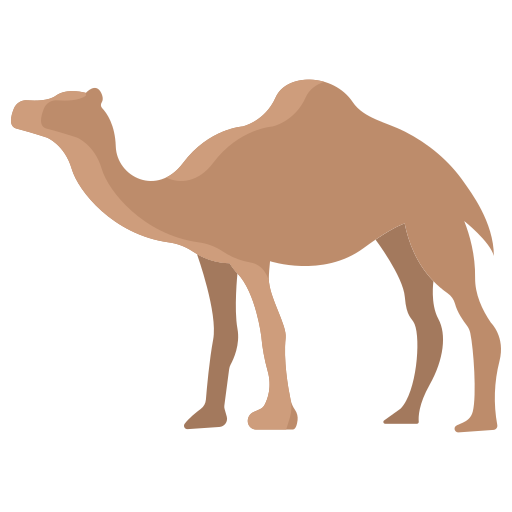Development of Value-Added camel milk products to enhance food security in arid and semi-arid areas of Northern Kenya
Highlights of the Project
The Development of Value-Added Camel Milk Products project, led by Prof. Joshua Arimi, is a transformative initiative addressing food security and economic empowerment in Northern Kenya’s arid and semi-arid regions. By leveraging the nutritional resilience of camel milk, the project has introduced innovative dairy and cosmetic products, supported local women’s groups through training and marketing partnerships, and fostered academic growth with multiple postgraduate research opportunities. With patented processing techniques, freeze-drying technology, and a focus on community-led value addition, the initiative is not only enriching diets but also generating sustainable livelihoods and stimulating local economies across Kenya’s drylands.

Project Impacts
Social Impact
Nourishing Lives, Empowering Communities.
Economic Impact
Turning Local Resources into Lasting Prosperity
- Women Empowerment: Over 100 women trained in hygiene, processing, and marketing.
- Better Nutrition: Improved access to nutrient-rich camel milk in remote areas.
- Educational Support: Sponsored students and involved them in community research.
- Youth Involvement: Engaged youth in value addition and product innovation.
- Knowledge Preservation: Integrated indigenous knowledge with modern practices.
- Community Collaboration: Strengthened ties among locals, institutions, and partners.
- Increased Household Income: Women and farmers earned more from milk sales.
- Job Creation: New roles in processing, transport, and sales emerged.
- Market Expansion: Products reached urban areas like Marikiti Market.
- SME Support: Local businesses scaled through value-added camel products.
- Reduced Wastage: Processing curbed milk losses, boosting profitability.
- Investor Attraction: Demonstrated potential for agri-business investment.
Camel details


approx. Ksh 100,000
Price per camel
Camel Milk Product Value chain
Pasturized Milk
Pasteurized milk is milk that has undergone a heat treatment process called pasteurization to kill harmful bacteria, primarily to make it safe for consumption and extend its shelf life. While some minor nutritional changes may occur, the essential nutrients are largely preserved.
Low Fat Content Milk
Low-fat milk is a dairy product from which a significant portion of the fat has been removed from whole milk. It’s a popular choice for those looking to reduce their fat and calorie intake while still benefiting from milk’s essential nutrients.
Powdered Milk
Powdered camel milk is a convenient and shelf-stable form of camel milk, made by dehydrating fresh camel milk while aiming to preserve its unique nutritional and therapeutic properties. It’s gaining popularity globally, offering the benefits of camel milk in a format that’s easier to transport, store, and consume.
Yorghut
Camel milk yogurt is a fermented dairy product made from camel milk, similar to how traditional yogurt is made from cow’s milk. However, due to the unique composition of camel milk, producing yogurt from it presents some challenges and results in a product with distinct characteristics and benefits.
Butter
More commonly camel ghee, is a clarified butter product made from camel milk. Its production presents unique challenges due to the specific composition of camel milk fat, but it offers a distinct nutritional profile and potential health benefits.
Cosmetic Products
cosmetics products from camel Camel-derived ingredients, primarily camel milk and to a lesser extent camel fat (hump fat), are increasingly being used in cosmetic products due to their unique composition and purported benefits for skin and hair. Camel products are gaining traction in the cosmetics industry, primarily utilizing camel milk for its rich nutrient profile and camel fat (hump fat) for its emollient properties.
Key Insights
Benefits
Camel Milk
- Fresh camel milk can be kept for 8hr. at 30° C.
- Pasteurized camel milk can last for more than 10 days at 4°C and when
- Wellness products.
- May aid brain conditions and autism spectrum disorder.
Camel Yorghut
- It reduces the bad cholesterol from our system.
- It lowers the blood sugar level (diabetes).
- It has anti fungal anti bacterial and anti inflamatory properties
- Camel ghee can be used in baby massage too as it has anti bacterial properties.
- It boosts the immunity system of our body and keeps our body mechanism good.
Camel Butter
- Improved digestion.
- Health Wellness
- Improved Cognitive function
Market Value
- Estimated 3.3 Million Camels in Kenya is valued KES 64.63 the second largest in the world following Somalia
- Projected to grow by 7.66% annually from 2024 to 2029 reaching a market volume of KES 297.27 billion by 2029 in Kenya.
- Camel milk Sold at KES 60 to 140 per litre (3 times the price of cow milk)